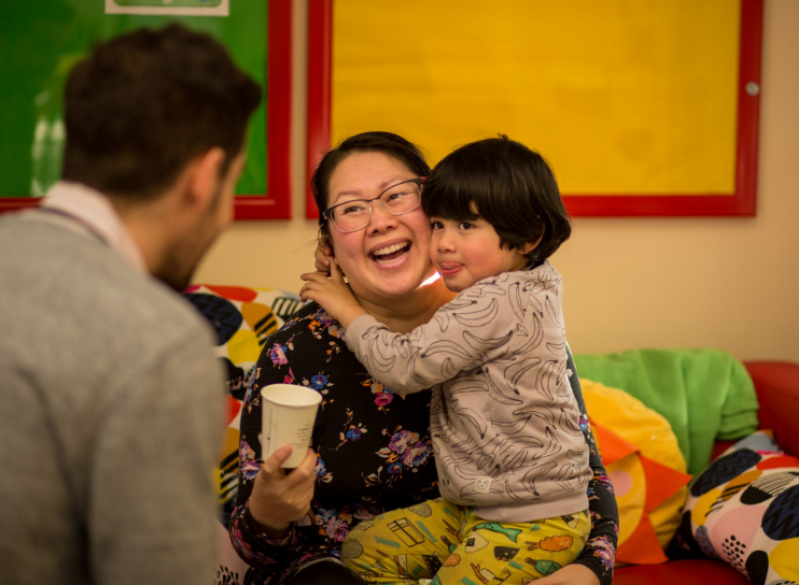
“Cinderella Sector”: that was once the description for the under-supported demographic that members of the U.K. parliament used in 2018 when debating the needs of young people with long term speech and language problems. A therapist for Growing Hope, a Christian charity in London, is suggesting methods for churches to better support these youngsters, estimated to number around one million (7.6% of all children).
Beth Marsden, a speech and language therapist at Growing Hope King’s Cross Clinic in London, provided exclusive insights to Christian Daily International about how churches can better support children with speech and language issues.
Marsden said that churches play a vital role in helping such youngsters and suggested several practical strategies.
Firstly, ensuring that Sunday morning kids groups at church meetings are inclusive for these children, regardless of their communication abilities, is “crucial.”
“This creates a sense of belonging, just as Jesus welcomed everyone–so should our kids groups,” pointed out Marsden. She suggested that dedicated volunteers specially trained in working with children with special educational needs (SEN) could make a significant, positive difference for the youngsters and families involved.
“These volunteers can provide personalized attention and tailored support, ensuring that each child’s unique needs are met,” she added.
Resource development is another area with Marsden suggesting that churches provide resources catering to diverse learning styles. She called this aspect “essential” and gave an example of creating a sensory box “filled with fidget tools, tactile materials, and other sensory items, [which] can help engage children who might struggle with traditional learning methods. These resources can enhance focus and make connecting with Jesus fun for all!”
Multisensory learning activities complement these resources Marsden says, and points to Jesus as an example of teaching truth in multi-sensory ways.
“Incorporating activities that engage all the senses can help children with communication issues better understand and participate,” said Marsden.
“For example, using visual aids, music, movement, and hands-on activities can accommodate different learning preferences.
“Jesus loved to engage all senses from taste (feeding the 5,000) to sight (show me your hands and feet) - God can connect with each of us in beautifully dynamic ways if we create space for this!”
Regular training for staff and volunteers on effective speech and language support for struggling children is also important. It ensures that everyone is equipped with the right tools and techniques.
Marsden encouraged family involvement too, helping them to be part of the church community and a supportive network. “Hosting workshops or support groups for parents can empower them and share strategies for supporting their children’s communication development,” she added.
Children with speech and language issues and their families need not only practical and regular support but ongoing prayers. Marsden outlined several prayer needs for believers to consider.
Firstly, praying for strength and resilience: “It can be hard being a parent of a child with additional needs, battles from right school placement, getting therapy support to daily challenges such as toileting routines and getting on the bus can often feel overwhelming,” said Marsden. “Pray for strength for the families including their emotional and mental well-being.”
Secondly, seeking healing and support: “Pray for physical and emotional healing where needed,” asked Marsden. “It can feel isolating and a lot of parents feel guilty of 'am I doing enough'. Pray for the right support systems to be put in place for the families.”
Thirdly, encouraging community and inclusion. “Pray for the church community to embrace these children, fostering an environment of love, acceptance, and inclusion,” said Marsden. “Ask for guidance in how to make the church a welcoming place for all. Also pray for communities; schools and local authorities to provide the much needed support for families.”
Meanwhile Growing Hope told Christian Daily International that the charity champions accessibility for these children and sets up clinics in partnership with churches across the U.K. The charity provides accessibility training, consultancy and an award for churches and schools, as well as facilitator training for parent and siblings courses.
“We bring hope to children with additional needs by providing free therapy–including speech, occupational, physio, music, art therapy and counseling–in our clinics. We give hope to families where hope has been lost due to isolation or rejection through our support groups and parent training and we share hope in Jesus because we believe Jesus brings hope even in the most difficult situations,” said Marsden.
Groups offered by the charity include “When Dreams Change”, giving space for parents and carers to share experiences of having a child with additional needs and the dynamic for he or she to “become more of the person they’ve been created to be.” Another group for siblings helps brothers and sisters to share feelings about their experiences using creative activities such as puppetry.
Speech and language therapy helps children improve their communication skills by assessing needs, developing personalized plans to achieve speech & language goals and to involve families so they can support their child at home and help them to flourish.





